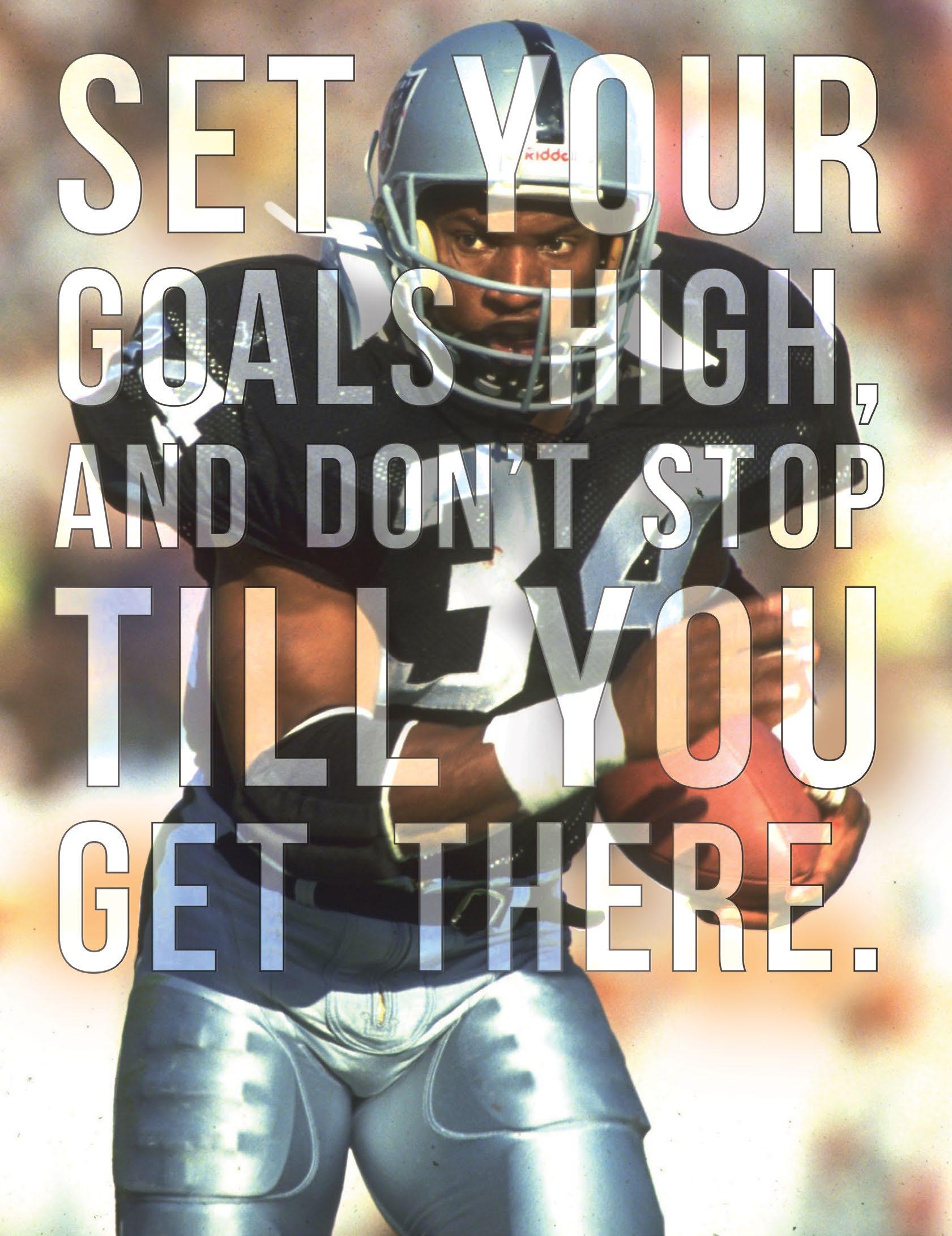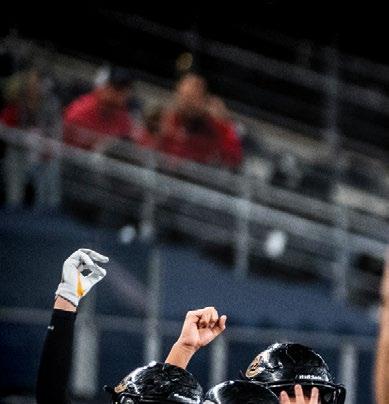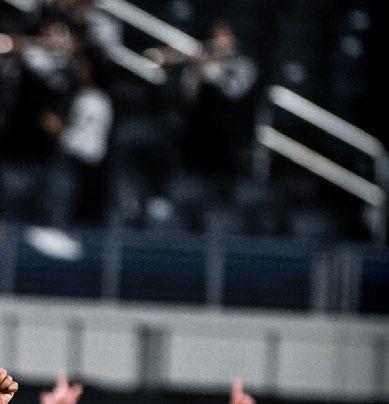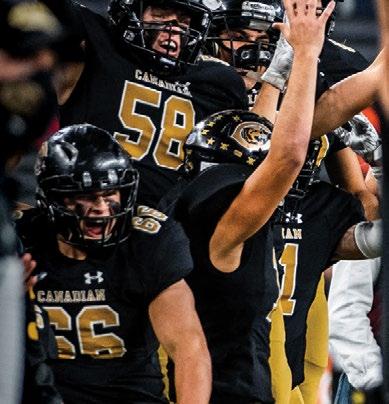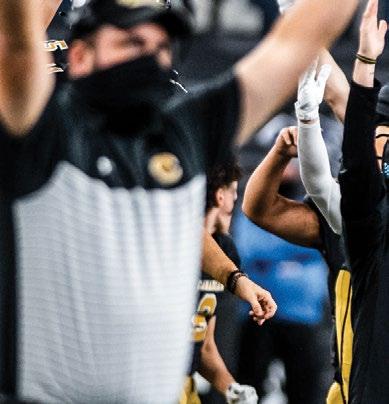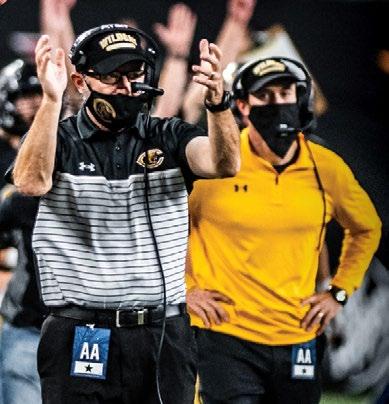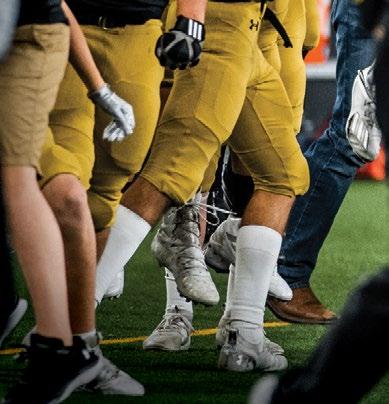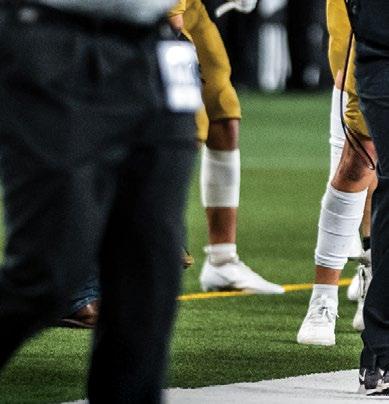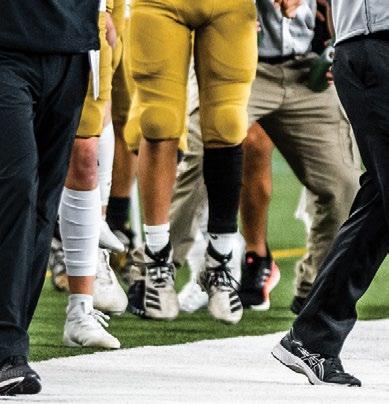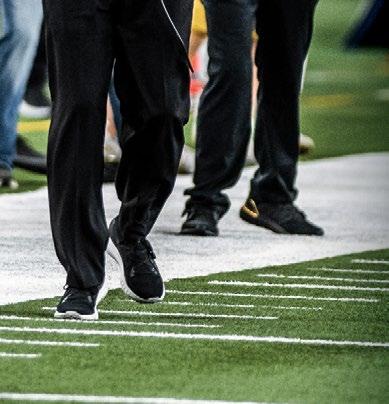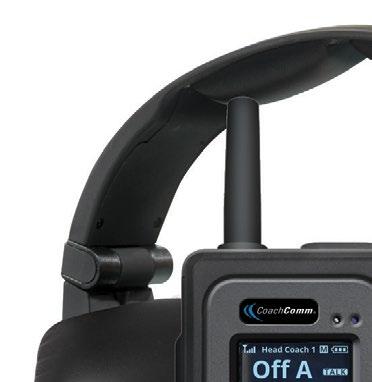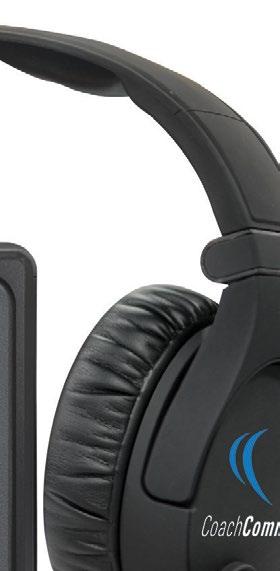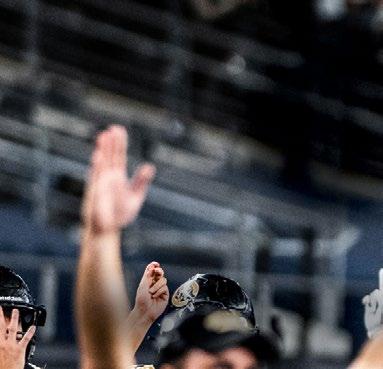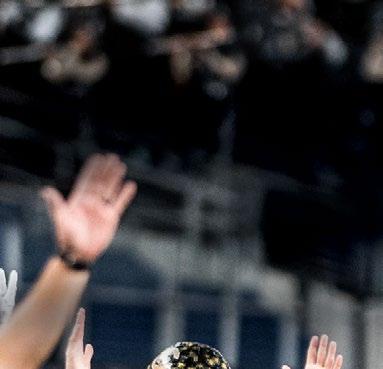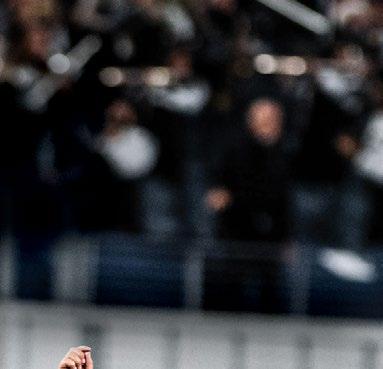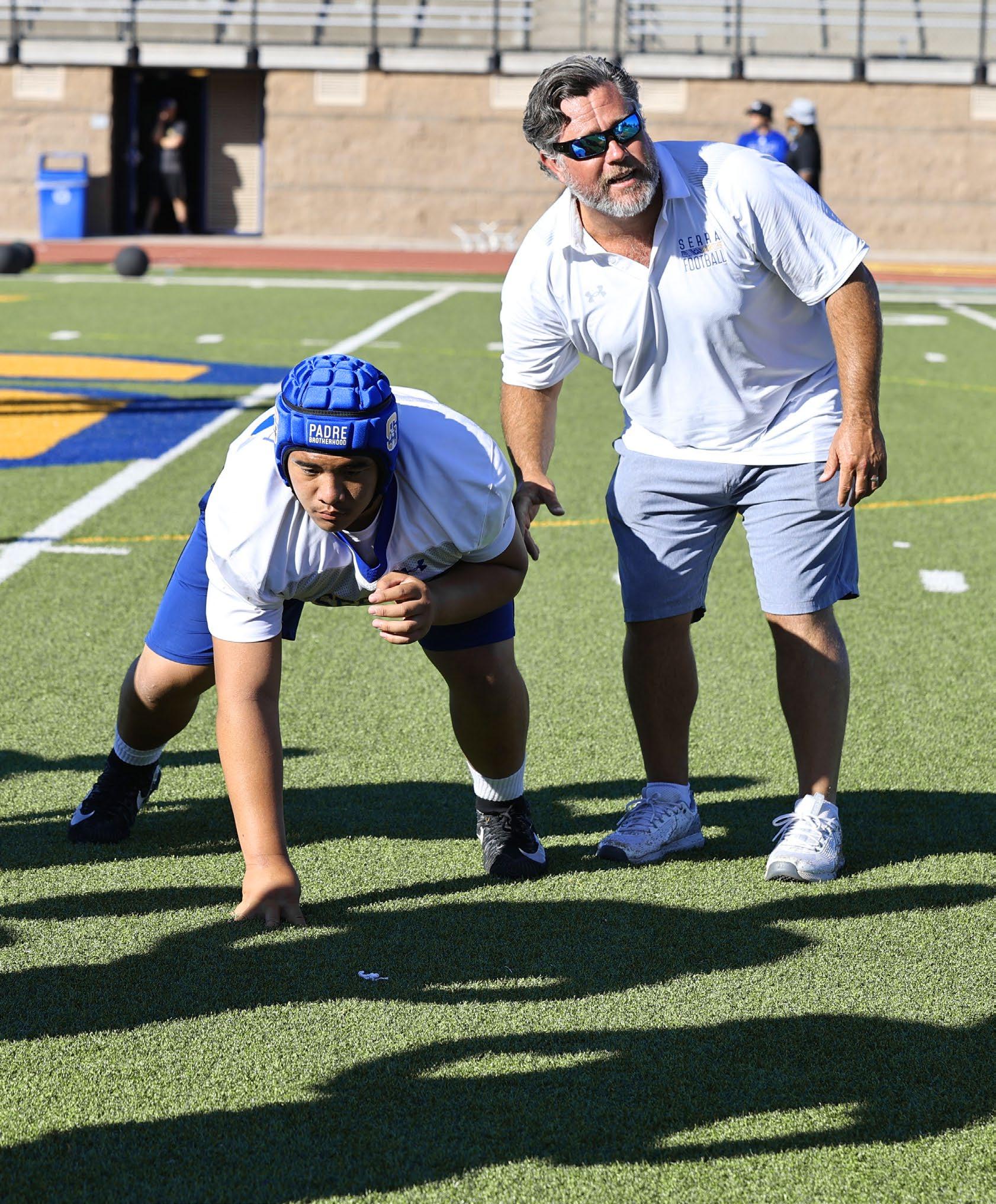







You never know when an athlete will suffer from a heat related illness. There is an easy way to ensure that you will be ready to save a life or mitigate potentially dire effects any time this happens.



The first ever of it’s kind. This tub can be used with ice or any Cold Daddy chiller. Extra thick walls, pressure injected foam and rotomolded construction mean unmatched cold water retention. Less ice. Less stress. More chill.



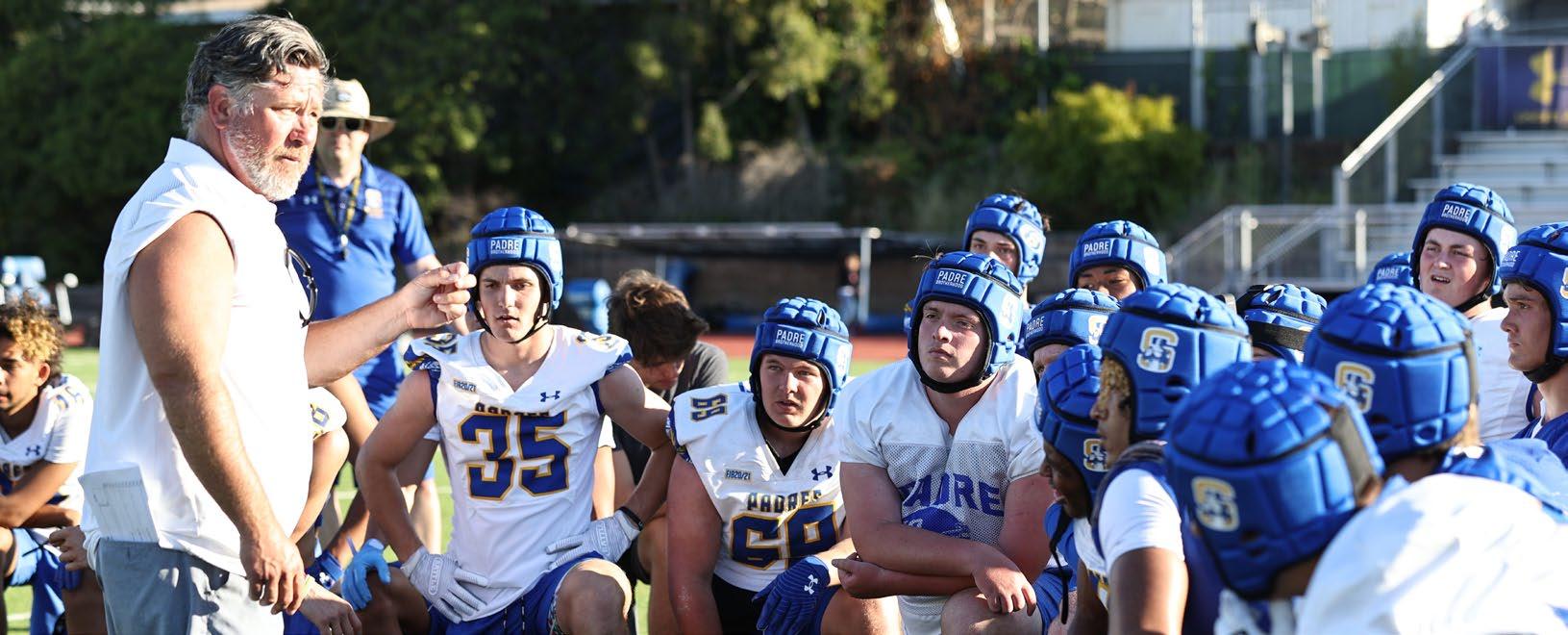
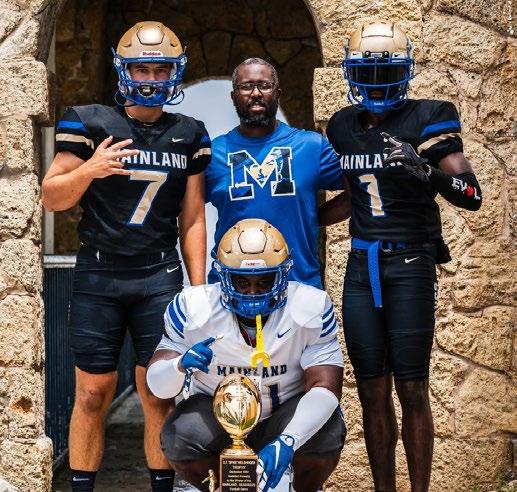
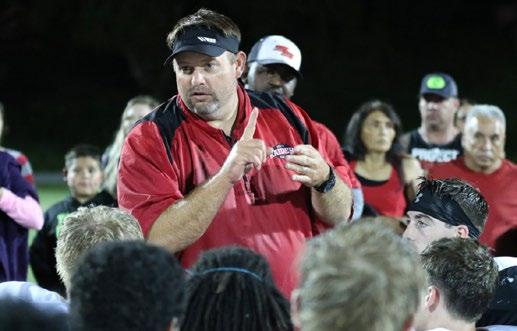
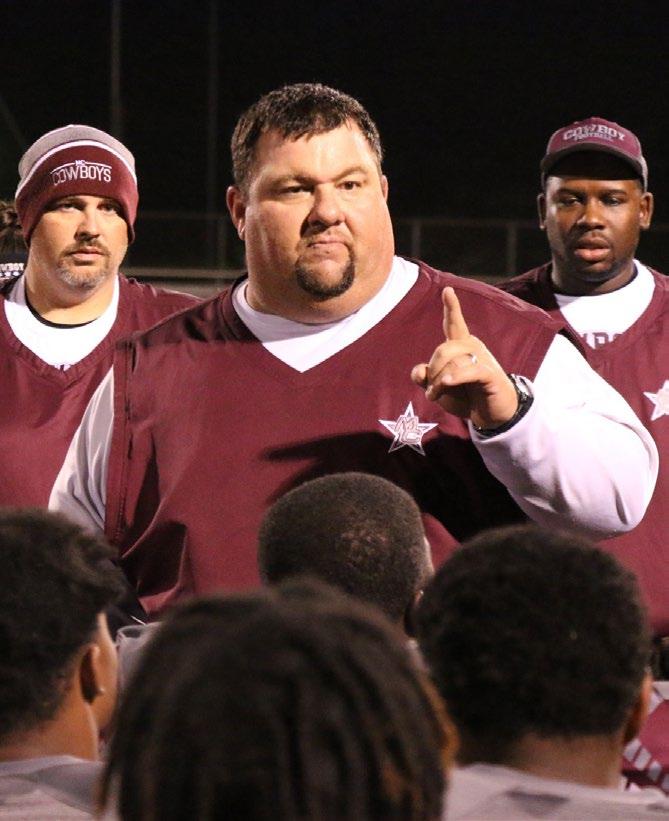
Travis Roland, head coach of Florida football powerhouse Mainland HS (Daytona Beach, Fla.), has had a lot of success no matter where he is or what he is doing. He was Mainland’s team captain on the first high school state championship team in Daytona Beach history (2003), then went on to nab First-Team All-MEAC honors at BethuneCookman at the FCS level of Division I college football. He is 33-17 as a varsity head coach coming into 2022, leading his former school – Flagler Palm Coast – to its first undefeated regular season in 2017.
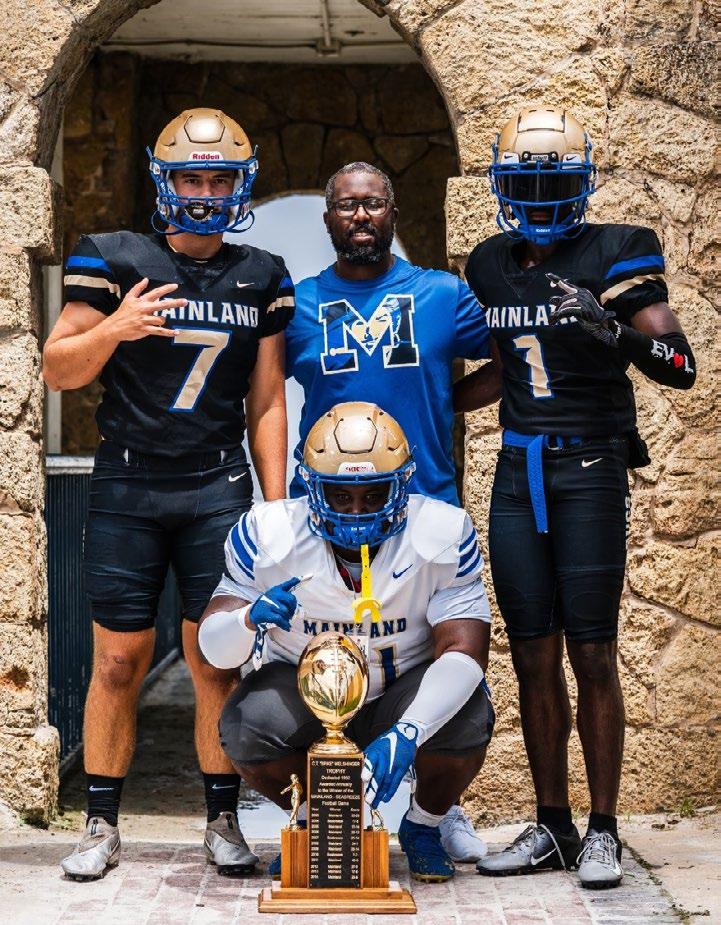
“HUDL HAS CHANGED THE GAME. Every kid has it on his phone, and I can check who watched film on their own. HUDL will tell you how much your players have watched in a week. Right now, I’m pulling up a player, and I can see he watched 20 minutes of film last night … We also use something called BAND, an app we use to communicate with parents. My last few (messages) are saying congrats to the team on a 2-0 start, what times we’re practicing with a Thursday game, and details about our JV and varsity games.”

“I GOT THIS IDEA FROM BARTRAM Trail (state powerhouse outside of Jacksonville, Fla.). We invested in a drone, for practice film footage. It’s the greatest thing you could get, beyond amazing. You can see everybody on the field in high definition. Any other way you film, you’re standing behind players on the sidelines and it’s not wide enough, or if you’re high up? The players look like ants, and you can’t make out the numbers. I know it’s 1100 or 1200 bucks, but it’s something you’re going to use every day and worth the investment.”



“ON OUR STAFF, WE BREAK UP (OFF the field) responsibilities. Some handle academics, others are parent liaisons, and myself and one other coach are in charge of fundraising ideas. We do two a year. One is a discount card that I’m pretty sure most programs do. We also use something called Teamworks, and it’s all online. We use that to share and track what we’re selling, and the players also have to share it out, with a deadline – like, you need to share this 10 times in the next four days, and we can track that.”

“EVERY SUMMER WE’RE GOING TO have a BBQ at the beach, and we’re not going to bring a football (as coaches) – though the boys usually end up with one anyway. The whole program is invited, the JV included. We also have summertime affirmation days … where we have fellowship, with food, and discuss our goals for the season, and get the guys to feel comfortable opening. And I’ll always say that if you can get an overnight trip to a camp or 7-on-7, it’s amazing to do that – with team bonding being the biggest reason.”
Whether its Instagram, Facebook, Twitter or another platform, athletic coaches need to be present on social media. Coaches need to build a brand and be relevant to the athletes who use social media on a regular basis. Some coaches find social media dif ficult, but others have had success building a brand and becoming influential. Social media can be a great outlet for coaches and programs and the best part is that regardless of the size of your program you can find benefit in having a presence. When it comes to your social media presence, it is important to invest thought and resources into a plan and know the dos and don’ts and how to create good habits on social media. I spend most of my time through social media on Twitter so let us talk a little about a few things to know before you hit send on that tweet…
TTHICK SKIN: Try to understand that just because YOU have an opinion on something, it does not mean that it is the only opinion. Remember that people will agree with you but often people will disagree. You must have thick skin and be able to roll with the punches when using social media. Not everybody is there to make you happy and occasionally you will run into the troll whose sole purpose is to anger you.
WWISDOM: Make sure that you are aware of WHAT you are talking about on social media. Nothing worse than a poster who gets called out immediately on what they are trying to discuss or promote. You should be up to date on current events as well as innovative discussions and ideas that people are having about the content.
ENGAGING: Staying relevant is key to finding out that master formula to going viral. This plays with the last key about knowing the content and staying on top of ideas. Nobody wants to read a social media post about something that was discussed weeks or months ago. Trying to stay engaging involves posting multiple times a day and staying on top of your followers and their market.
EENTERTAINING: At the end of the day, remember that you should be entertaining and inviting on social media. Find some fun hashtags to use. Post that funny video or GIF occasionally. Let your followers know that you are funny and insightful on the current events and fun contemporary trends. Your followers will appreciate it and your mind will be at ease without having the serious of the actual world weighing heavy on it.
TTHOUGHTFUL: Finally, we have thoughtful. This is really the simplest and easiest thing to remember when using social media and it all boils down to this; be nice. It takes absolutely nothing out of your day and costs you not a penny to be respectful and appreciative of your followers and of the other individuals who are using social media. Being thoughtful does not mean you have to bend over backwards for anybody, but it does mean that you can carefully choose your words and avoid conflicts at all costs.
Overall, when you are using any form of social media, obviously I chose Twitter because it is what I know best, try to be a good person overall and do not take any platform too seriously. Have fun, promote whatever it is you need to promote and make somebody smile.
TONY SHIFFMAN was recently hired at Elmhurst University to serve as the offensive line coach after spending the past three seasons at Lake Forest College. Prior to his arrival at Lake Forest, Shiffman spent two seasons (2017-18) as the head coach and offensive coordinator Fort Madison High School in Iowa. Shiffman also made coaching stops in Tennessee (201517), North Carolina (2014-15) and he began his coaching career in Illinois (2007-13). Shiffman played collegiate football at Illinois College and earned his master’s degree from Greenville College. He and his wife Alissa welcomed a baby girl, Frances, in April.
COBALT PLUS COACHING HEADSETS PROVIDE MORE full-featured users and more flexibility, and now with player communications options, too. Featuring easy setup, extended range, and exceptional performance, the system is also coupled with the industry’s most trusted D-1 SmartBoom® headset. Backed by outstanding service, Cobalt also has a two-year warranty on parts & labor. It’s a powerful combination - a great coaching headset solution to fit your needs and your budget. FOR MORE INFORMATION, VISIT COACHCOMM.COM/COBALTPLUS
FNF COACHES MAGAZINE A.E. ENGINE, INC. 23110 STATE ROAD 54 SUITE 293 LUTZ, FL 33549 | USA PHONE: 727.209.1750
WEB: FNFCOACHES.COM
PUBLISHER: CRAIG BARONCELLI VICE PRESIDENT, SALES: DAVID WATSON
NATIONAL ACCOUNT EXECUTIVES: JUSTIN HAND, MARK MORALES PRODUCTION
MANAGING EDITOR: CRAIG BARONCELLI
PROJECT ART DIRECTOR: JOE RABUCK
DIRECTOR OF DIGITAL MEDIA: NICOLE COOPER
DIRECTOR OF DIGITAL CONTENT: JOSH MULL
WRITERS: DAN GUTTENPLAN, BRIAN MCLAUGHLIN, COREY LONG, DEREK SMITH
THE FIRST EVER OF ITS kind, this tub can be used with ice or any Cold Daddy chiller. Extra thick walls, pressure injected foam and rotomolded construction mean unmatched cold water retention. Less ice. Less stress. More chill.

MSRP: $1,200
WEB: colddaddy.com/thebay-tub
PORTA PHONE’S NEW TD 900 HD WIRELESS headsets have been upgraded and now provide expanded capacity of up to 17 coaches along with digital, High Definition performance. The TD 900 HD are totally self-contained headsets that do not require belt packs or base stations. They utilize a special operating system known “Frequency Hopping” which means they constantly monitor the air and switch channels automatically to avoid interference. Coaches also benefit from the “Auto Mute” boom that shuts off the microphone when set in the straight up position. In addition, the 900 Mhz band provides over twice the output power and are designed for use in University and Pro stadiums.
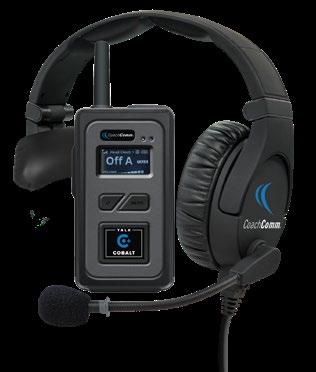

WEB: portaphone.com
INTRODUCING THE NEW AERIAL ATTACK Football machine that is designed for football programs on a tight budget. This unit will deliver right-footed deep spiral punts that turn over as well as end-over-end kickoffs for coverage and return practice. Plus… it throws both long and short passes for receiving and defensive drills. The machine pivots in any direction to challenge the defensive coverage or to instantly throw to an exact location.
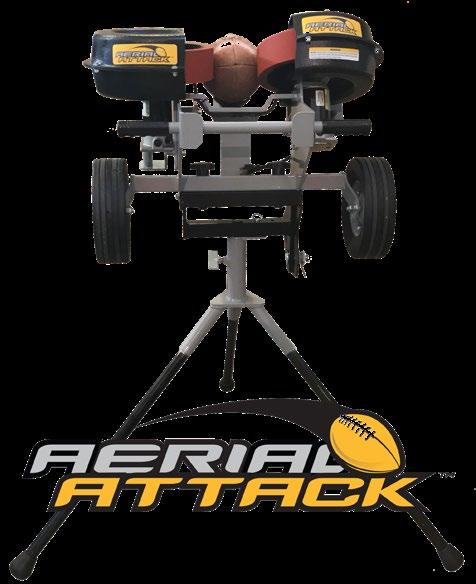
The two solid polyurethane throwing wheels grip the ball for a tight spiral and precise ball delivery. The Aerial Attack is easily moved around during practice or can be used with the Universal Cart Clamp to attach to any cart.
Now all programs can afford to practice like the pros and make the most of every practice.
MSRP: $2,999
WEB: sportsattack.com/football/aerial-attack/
PHOTOS: GINA RUTHERFORD, PATTY WELLS, JUNIPERO SERRA HIGH SCHOOL
COVER: PHOTO PROVIDED BY JUNIPERO SERRA HIGH SCHOOL
A.E. ENGINE SPECIFIES THAT POSTPRESS CHANGES MAY OCCUR TO ANY INFORMATION PRESENTED IN THIS PUBLICATION AND TAKES NO RESPONSIBILITY FOR GOODS OR SERVICES ADVERTISED.
MAIL ORDER: TO RECEIVE A SUBSCRIPTION TO FNF COACHES MAGAZINE, SEND A CHECK OR MONEY ORDER FOR $20 TO: FNF COACHES MAGAZINE, C/O A.E. ENGINE, 23110 STATE ROAD 54, SUITE 293 , LUTZ, FL 33549. PLEASE INCLUDE YOUR RETURN MAILING ADDRESS AND AN EMAIL ADDRESS.
ONLINE ORDER: SUBSCRIPTIONS CAN BE ORDERED ONLINE AT FNFCOACHES.COM.
SALES INQUIRIES: IF YOU ARE INTERESTED IN ADVERTISING IN FNF COACHES MAGAZINE OR WOULD LIKE TO BECOME A FIELD REPRESENTATIVE, PLEASE CONTACT CRAIG BARONCELLI AT (727) 608-8102, OR CB@AE-ENGINE.COM. PRINTED IN THE U.S.A.

UC Davis head coach Dan Hawkins has seen multiple levels of football during his 40-plus years of coaching. “Coach Hawk” has been back with his alma mater since 2017 and has turned the program around from 2-9 the year before he arrived to earn a share of the FCS’ Big Sky Conference regular season championship and lead a 10-win season two years later. It’s become a routine for the successful veteran coach. In his second year with the Big 12’s Colorado (2007) he led the Buffaloes to a bowl game. In his second season at Boise State (2002), he led the Broncos to a bowl-game win and a 12-win season. Coach “Hawk” took a few minutes to talk with FNF Coaches about his career path and building culture.
f When I talk to a lot of college coaches and HS coaches about what’s more important: The Jimmies and the Joes (recruiting) or the Xs and the Ox (planning/playcalling), not surprisingly I get the self-deprecating answer that the “kids” matter most. But many coaches will add that there’s actually a third dimension that’s the most important: Culture. What does “culture” mean in your career, Coach Hawk?
“When I think of the word culture, I think it’s really just smashing those two worlds together first (Jimmies and Joes … and the Xs and Os parts). I do believe in having a strong program culture. As technology becomes a bigger and bigger part of it, the transfer of information, you name it. People are starting to understand more and more about the value of coaching and especially program culture.
“There is a talent portion, a coaching portion, a culture portion –and you can be really good at two of the three, but not good at the third – and you’ll be suboptimal. Every successful business deals with this, too. It means a great deal in any organization.”
f You’ve coached and had success at multiple levels of football. You’ve coached at the high school level, JUCO ball, D-III, D-II, the FCS, FBS, Canadian Football League, over in Europe, and even the U.S. National team. Would you say the smaller the level, the more culture matters? Or is it in reverse? What would you say, coach?
“I think it’s key everywhere. Even when I coached with the Montreal Alouettes (in the CFL), I used to work at (culture) and do it. I didn’t make it very long at the pro level, but you’d be surprised how many of those players hit me up today, even after I got fired. I still remember leaving UC Davis as a grad assistant after I finished school (1980s), and I took my first job coaching at the high school level. I remember thinking, OK, I’ve got to do this by myself.

What was UC Davis for me? It was a good feeling, and I wanted to continue that. Why was it a good feeling? Because we were all a
part of the decision-making.
“So felt like, don’t just run off and make all the decisions on your own. Talk to the players, what would they like to see? What would the other coaches like to see? You hear about “servant leadership” in other places? We all need to understand that all of us need to take ownership, not just the head coach. We all need to be a part of the direction of the program. That’s my formula: That talent plus experience, plus depth, times culture – that’s the multiplier that equals success. What’s that X-factor? And it is that good culture that will equal success. That to me is how I look at it. We spend as much time reinforcing our coaches as we do anything else.” f Who were some of your mentors when it came to learning about how to coach culture?
“I think Bob Foster (one of Hawkins’ coaches at UC Davis) is one. He’s my guy. He would get five inches from your face, and he’d tell me – as a young coach – that if I told a player something 1,000 times and he still doesn’t get it, I must be a lousy teacher because I’m not getting through to him. He didn’t believe in blaming the player. If a guy makes a physical mistake? That’s on me. If he makes a mental mistake, I’m not going to blame it on the kid. Because when you break that trust with your player, it’s tough to come back to it. I’m not going to blame it on the kid.
“And people have given me credit for Boise State growing into something special, but trust me, that program was a good one way before we got there, and (future NFL head coach) Dirk Koetter was the one who hired me as an assistant there and I learned from him.
f And what are some examples you’d throw out there?

“When it comes to program culture for anything – a sports team, the business world, anything – there’s an ancient saying. It says the worst leader is the one every body hates. The next worst is the one everybody loves, and the best leader is the one who has worked hard to build a program to the point where the leader is in the background, so it appears it could have been done without them. Everybody has their own definition of leadership but to me, we are developing the next group of leaders. You’ve got to give people ownership, and the optimal conditions to grow and prosper.
“If it’s fourth down and the end of the game, I’m going to call a timeout and I’m going to ask our guys – our young coaches, maybe even our own players – what do you want to run? When we beat Fresno State with David Carr playing quarterback (while with Boise State), we called a timeout and brought our defense over. And they told us, if we’re going to go down, we want to go down swinging – let’s go after this guy.
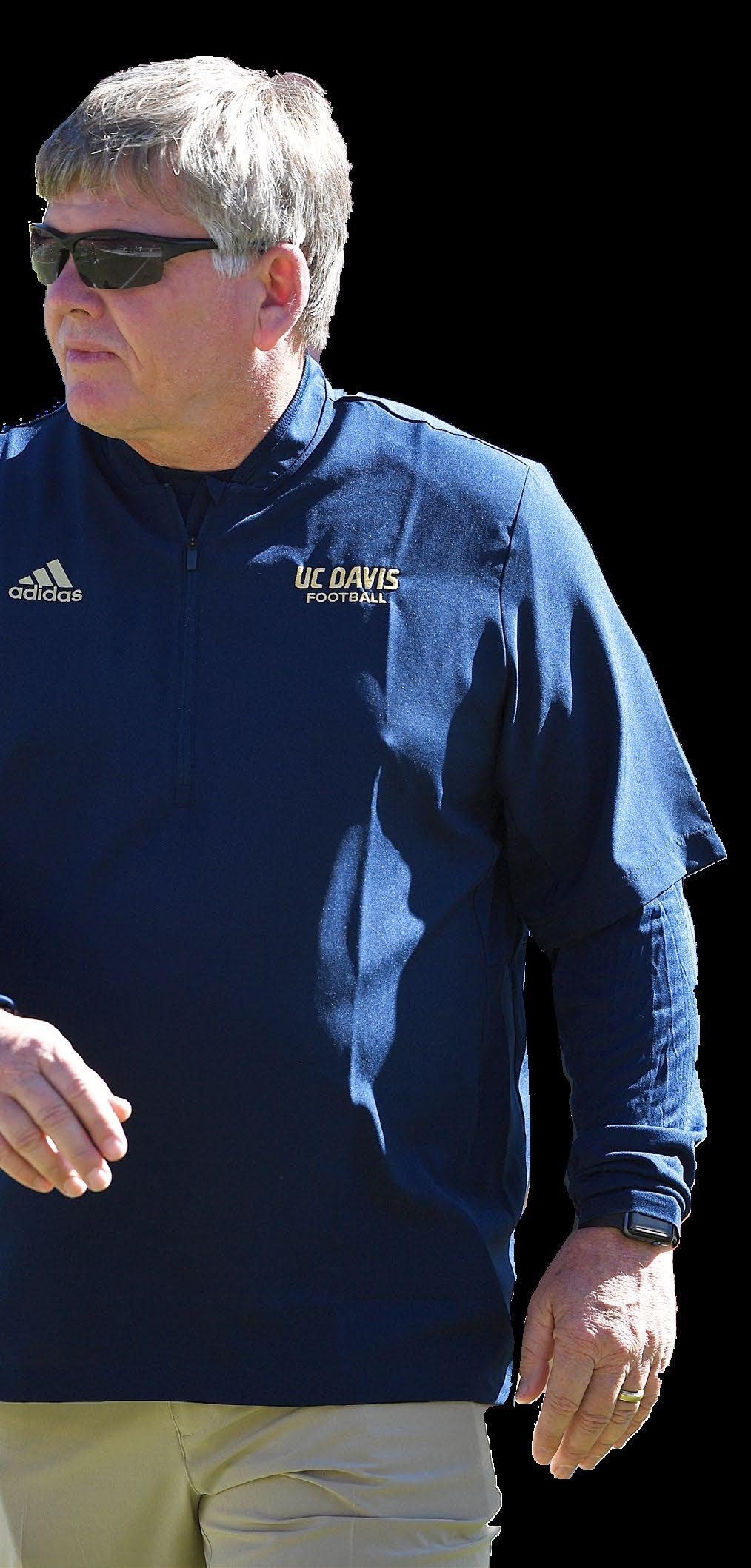
“And what happened? We sacked Carr and the game was over. If you give everybody in the organization an oar and we all get rowing in the same direction, I don’t want to say that the head coach is the least important person on the boat, but on a perfect game day? I’m clapping just like the fans and the players and assistant coaches are in charge. They’re thinking and owning what’s going on.”
“That’s how I view creating a culture.”
Merriam-Webster defines culture as a set of shared attitudes, values and social practices that characterize an insti tution or organization.
Football coaches want to establish a culture of winning in order to progress and not become stagnate. The alternative is a losing culture, and there is no in between.
One of California’s most decorated high school football coaches has used the core values of love, brotherhood and humility to build the Junipero Serra Padres into a model of consistency on the gridiron.
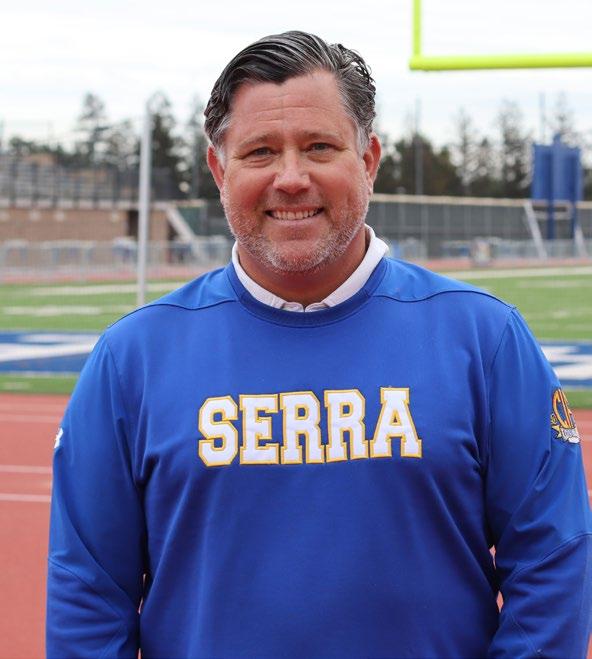
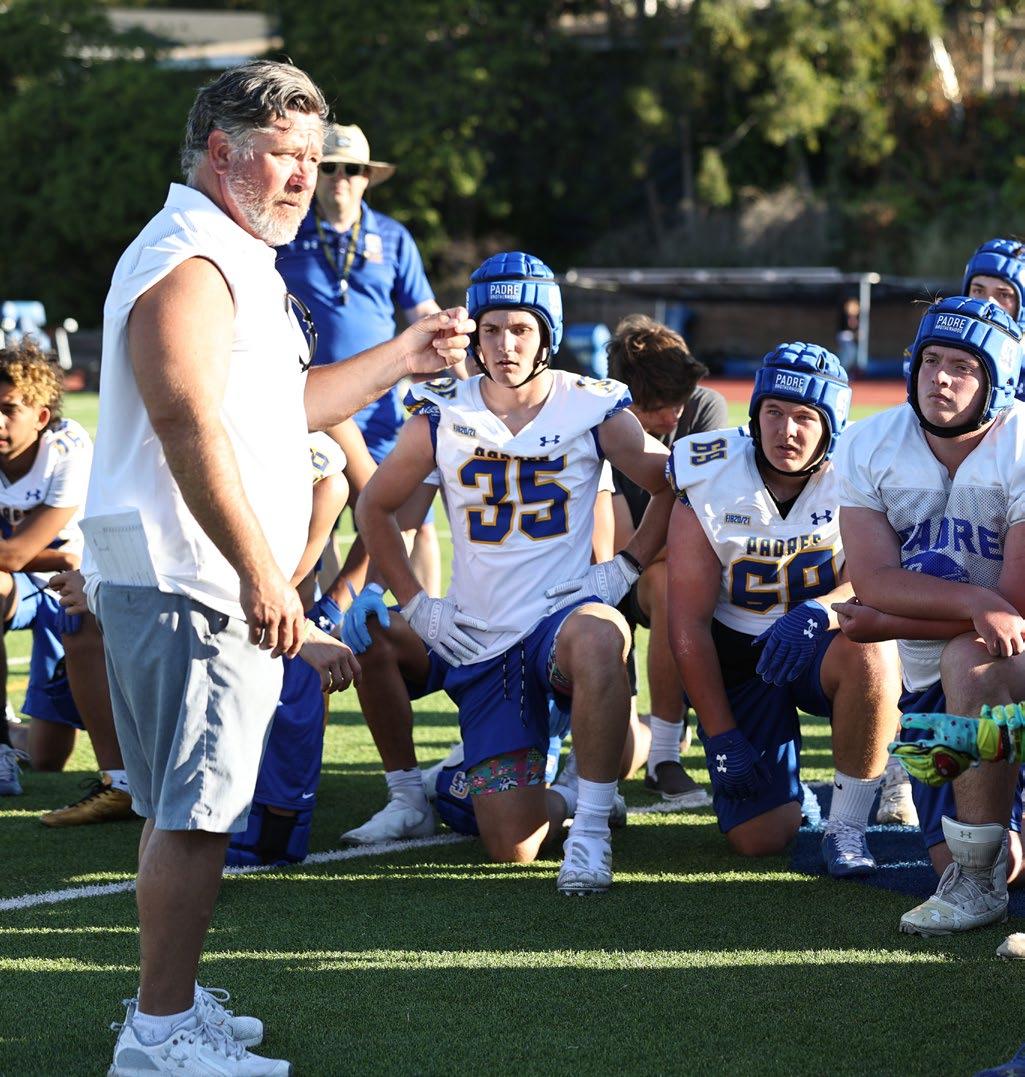
“Everything we do in the weight room, the field, the film room, the classroom, if love is at the center of it, then we feel we can lift each other up to higher levels,” said Serra coach Patrick Walsh. “Getting a true individual to buy into the
collective allows that individual to feel the love of the other 70 players on the team which will buoy him to higher individual success. We don’t what to let down the organization, the culture, the program.”
Walsh, 47, took over the program at the all-boys Catholic school in 2001 at the age of 26. At first he modeled himself and the program after his mentor and high school coach Bob Ladouceur. But he realized people can’t be imitated, especially someone like Ladouceur.
“In all fairness to my young self, I tried to duplicate what was ridicu lously successful and what I knew,” he said.
Toward the end of his first decade at Serra, Walsh began to re-evaluate the state of his program. The Padres, who ran an option-based, double wing offense, lost twice to their main rival, both times on the goal line. He wondered if his offense had become too predictable.
In a conversation with his sister, he told her he wasn’t sure the Padres the ‘it’ factor to compete against the best teams in California.
“She said, ‘do you have it?’ Oh boy, that stings,” Walsh said. “I decided to stop looking outward and dive inward on things I could do better in my life.”
He took a long, hard look at himself in the mirror and didn’t necessarily like what he saw.
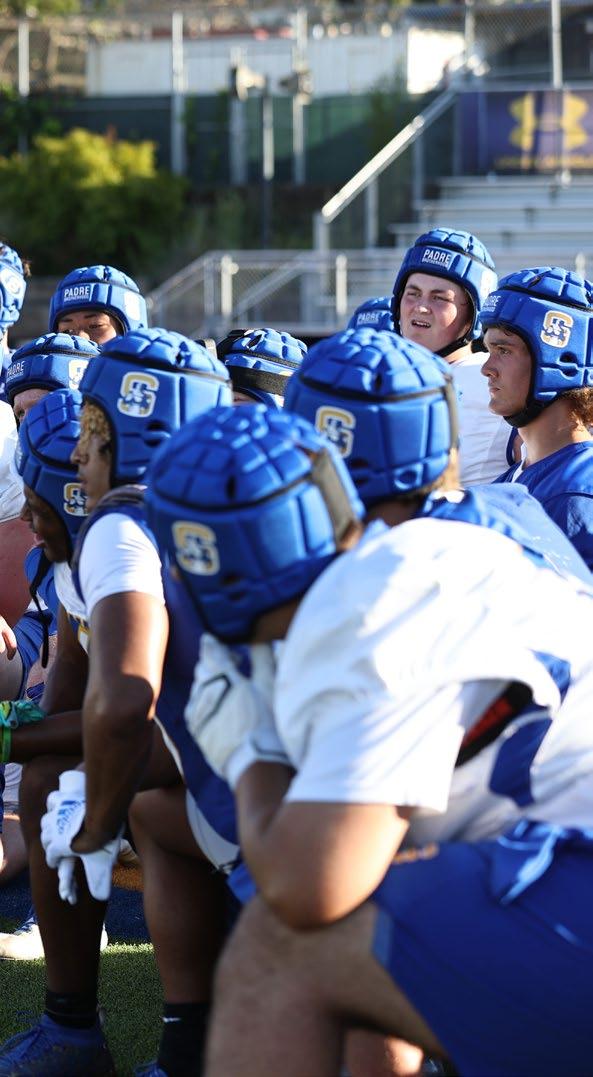
■ Above: Coach Walsh’s values of love, brotherhood, and humility have created a culture of consitancy and winning at Junipero.
“What can I do to do strengthen myself,” he pondered?
Walsh said he was overweight, probably drinking too much, not eating healthy, not necessarily happy and generally was not taking proper care of himself.
In 2013, he made personal changes to his lifestyle.
“I thought I could be more authentic to the players because I was working on myself, too. That would put me on the same plane as the players. We’re all human. We all struggle. We’re all in this together,” Walsh said.
This period of open mindedness also led to huge an overhaul of the team.
After running a physical, ground based attack for over ten years, he scrapped the run game and went to a high, flying passing attack.
“It’s scary to change philosophies but I knew if we continued to do the same thing over and over again we’d keep losing to our rivals on the one-yard line every year,” Walsh said.
He turned the defense over to a coordi nator from a rival school and brought in a new offensive coordinator to install a passing game.
“Best thing I ever did. Ever did. Coaches should always strive to hire people that are smarter than them,” Walsh said.
Serra has won eight WCAL champion ships, six CCS championships, four NorCal championships and one state title at the San Mateo, Ca., high school. The Padres only went to the playoffs three times before Walsh took the job. They’ve been to the playoffs 18 times in the last 21 years.

“We’re in a pretty sweet spot right now,” he said. “Now that we’ve been doing to for two decades we’ve been able to tap into the tradition.”
Walsh played football at San Jose State for four years and played on the Aztecs baseball team for three seasons. He transferred to Texas in 1997 and played baseball for the Long Horns and was a graduate assistant on the football team that fall.
He is one of the most decorated play ers in De La Salle, Concord, Ca., school history and was inducted in the school’s hall of fame in 2011. A valedictorian, California player of the year, recordholder, all-league baseball player, he was an assistant at his alma mater from 1998-2000.
cupboard packed and stacked with talent so that the handoff wouldn’t be so brutal.
That was Sherman’s kind of culture – think about others before you think about your own glory. It fits the South Sumter template.
The program won the regional champi onship in 2016, and then in 2017 had the first winless season in South Sumter history. Lawrence got a taste of both sides of the football universe in about 15 months.
He learned from both experiences, and his teams have made the playoffs four straight seasons since the winless campaign. But again, that winning culture Sherman built (only four losing seasons since Lawrence was nine years old) set the tone for the new coach and for the entire community of Bushnell.
“I’m sure Inman had the opportunity to move on at some point in his career,” Lawrence told FNF Coaches. “But he never told me anything about it. He wanted to be here, and I want to be here at South Sumter. It takes a lot of trust; I think that’s where you start when it comes to culture.”
When it comes to building something special – from scratch – Ty Lawrence certainly has had a front-row seat for a unique journey. He’s held the steering wheel for a part of it, too.
Lawrence is the head coach at South Sumter HS in Bushnell, Fla., and has kept the proverbial torch lit in a rural, public-school program that has been doing things the same way since the 1980s – and arguably even earlier than that.
The head coach came to Bushnell just a short time after his own playing days were over. His first position in 1998 was as defensive line coach, and he grew from there under the tutelage of Inman Sherman, one of the 20 winningest coaches in Florida’s 100-plus year history.
The culture at the rural Florida powerhouse hasn’t really changed much in nearly four decades, and Lawrence intends to keep it that way.
The biggest lesson learned by Lawrence, from Sherman is: Don’t worship your own success. Ever. No matter how much of it you have. In 2016, when Sherman stepped down after 32 seasons of washing his players’ uniforms, keeping the locker room tidy, mentoring kids who didn’t have father figures and even those who did, and winning 261 games – Lawrence took over.
Six years later, Lawrence is the third-winningest coach in the history of high school football in southern Sumter County – spanning nearly 100 years now and counting. He will very likely own the No. 2 all-time spot behind Sherman (needs six wins) by November.
When the coaching transition happened, Sherman bestowed a selfless gift upon the first-time head coach and his stellar staff. Instead of going out with one last hurrah in 2016 with a loaded, experienced, and talented roster – he left the
Consistency, continuity, loyalty –whatever you want to call it, it’s rarer today than it was several years ago: And that is part of the South Sumter gridiron equation. Even the county and school administration have been incredibly consistent for years.
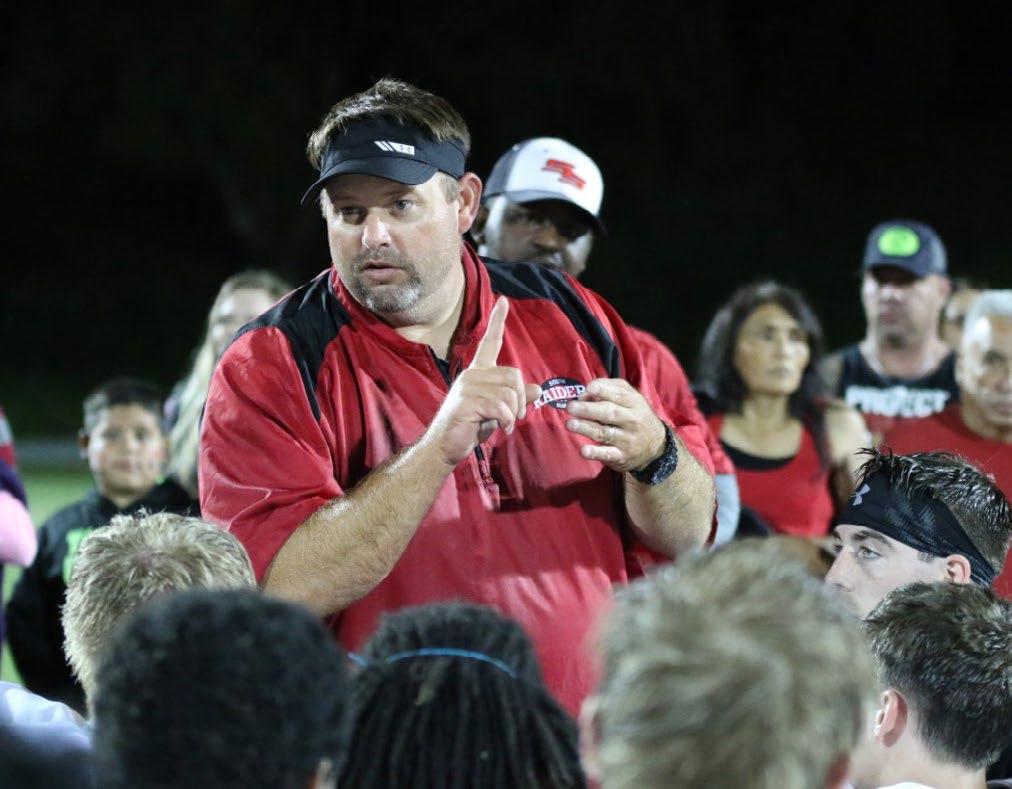
Lawrence said that he was sitting with Sherman early in his career and brought up his dream of being a head coach one day. He asked what the biggest reason for success at South Sumter was – a school that had reached the Florida state playoffs only once between its first year of 1959 and its next playoff trip in 1992. Sherman said it had nothing to do with the conventional thoughts about being a mentor at a program.
“I was so blessed to have him as the first head coach I worked for,” Lawrence said. “I asked him what do I have to do to be a good head coach. And the very first thing he said is you’d better build relationships with these kids. He didn’t say one thing about Xs and Os. He didn’t say anything about how long you had to serve as a coordinator – he only talked about relationships.
PHOTOS COURTESY OF PATTY WELLS“He said you can tell a kid everything about a scheme, but if he doesn’t trust you first it’s just not going to work. You have to build trust, and you need to be consistent, year after year. That’s why our guys keep coming back and coming back. It surely isn’t about me, it’s about all of them wanting to come back to South Sumter to be a part of it.”
The truth is, we’re not born knowing everything. Mentors are incredibly important, and selfless ness is as well. Time and time again, successful coaches have said these things, and Lawrence is no different.
Longevity, community, alumni electricity – you name it, those words also come up when discussing South Sumter. It has turned into one of the top public high school pro grams in Florida in the past quarter of a century and more – and there’s no urban hotspot to visit when you need to refuel with talent.
Former and current NFL players like Clint Hart and Keanu Neal, college stars, and former South Sumter players who made a success out of themselves off the gridiron all come back to help. There is no difference between the NFL and college successes and those who played their last meaningful snaps on the gridiron in a Raiders’ uniform. They’re equaled from the standpoint of enthusiasm to help the program – even when they’re adults. That’s part of the success that has been built.
But that flame needs continuous stoking. In this day and age, you have to recruit your own hallways – and Lawrence has continued something that made Sherman great: He gets to know the kids zoned to be at South Sumter, even if they’re in elementary school. Many times, they’re the little brothers of current or past players, or maybe the son of a past player – or maybe even a grandson of one of Sherman’s top players from the 1980s. No matter what, if a child is going to be at South Sumter – that child is somebody special to the current South Sumter staff.
Speaking of that staff and the word consistency, many of the gentlemen on staff have been with the Raiders since the
early years of Sherman’s tenure. Keith Hileman has been a part of it for 33 years, Stan Coburn goes back 25 years, and Mike Foote has been here 17 years. There are former players who went on to play college ball – and they’re back to fortify their hometown program.
This is South Sumter culture.
But has Lawrence done anything even a tad bit different than Sher man? Honestly – not that much, but he’s added a few bells and whistles here and there.
During his first season, Lawrence and his staff instituted an idea to “keep the older guys around”.
A “guest coach” was invited each game week. Some of them are par ents of players, former players in the program, you name it. Even the Sumter County property appraiser Joey Hooten – who dishes out jabs (and takes them) with relatives at nearby gridiron rival Dunnellon –has been asked to be a guest coach.
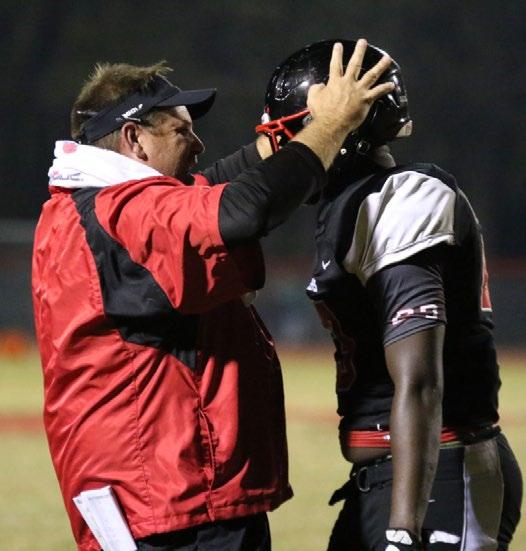
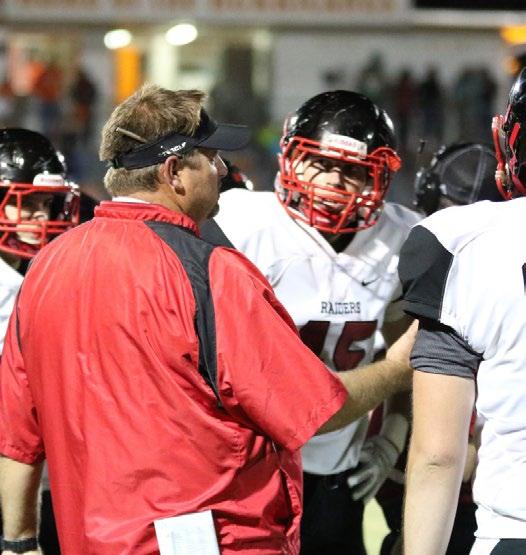
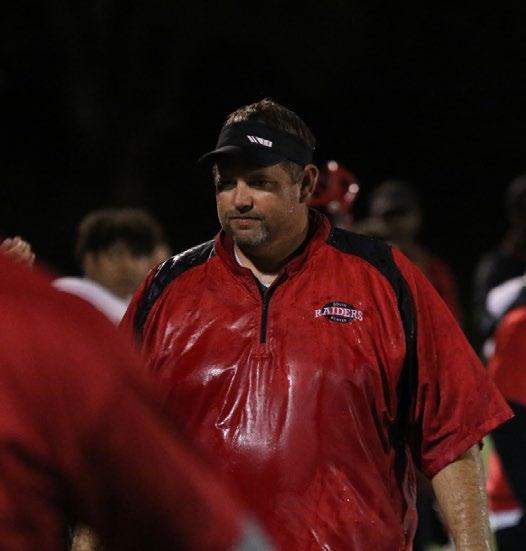
“We made sure (Hooten) was the guest coach that particular week,” Lawrence said. “He hates them, they hate us.”
The guest is invited to Sunday coach meetings, and all the practices, they’re invited to speak to the team on Thursday and they ride the bus to away games. The coaching staff wants people who still would like to be around the program, and the hope is they go back into the community and give a positive report on how things work.
Lawrence added that idea, but in general, he’s just kept it between the navigational beacons that were erected long ago.
“Inman did everything the right way and I wasn’t going to throw all that out the window,” Lawrence said. “He knew how our kids lived and where they were from, and he laid out a plan and was very successful with it.”
Sometimes, creating a good program culture is as simple as just being a superb listener – and being able to discern what is most critical and what isn’t.
That’s what has led this program to win 68 percent of its ballgames since Sherman took over in 1984 – and still not be obsessed only with the statistic.
taking over one of the most successful rural, public-school programs in Florida (Madison County) – and he passed with flying colors. Not surprisingly, that caught the eye of several football programs in the state of Georgia – and one of the strong ones, Coffee County, lured him away this past offseason from a program that had been his home since he was in his mid to late 20s.
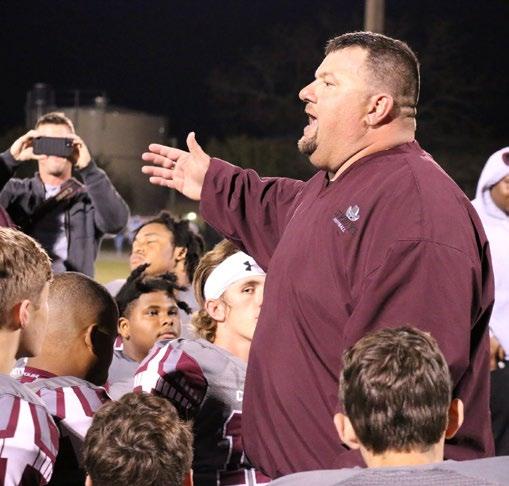
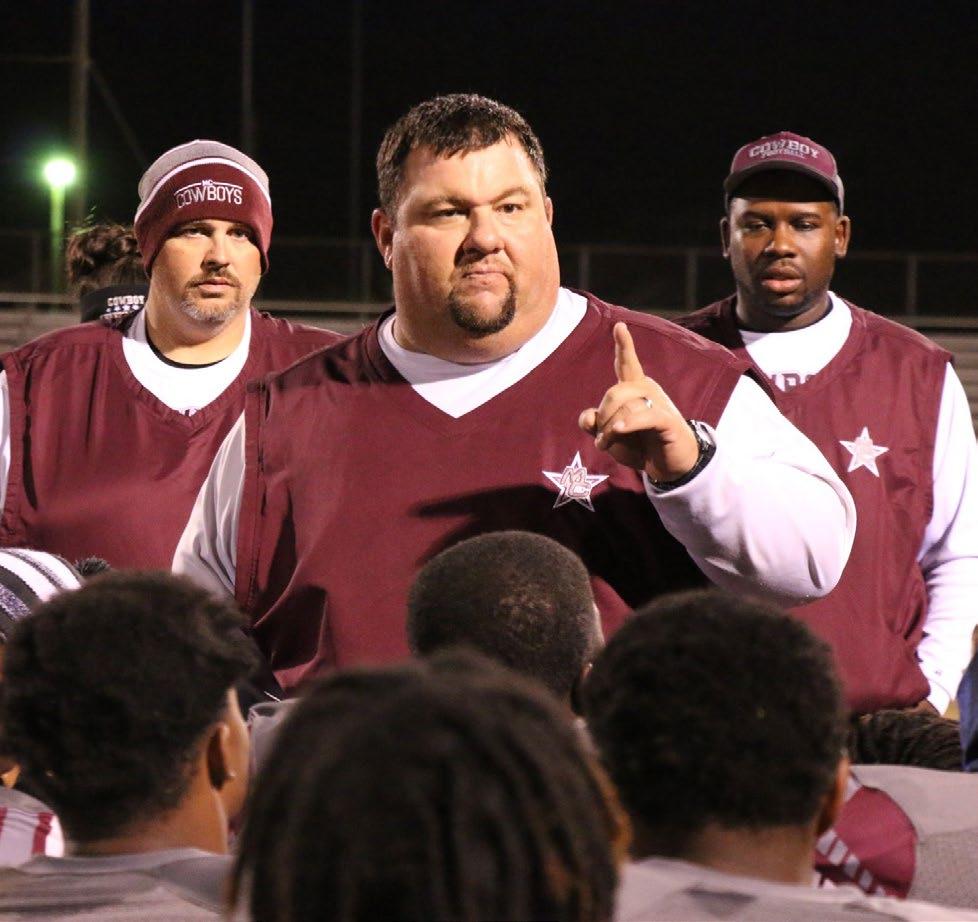
Coe humble nature relays a clear mes sage: The biggest thing about establishing culture in a program is paying it forward. And never forgetting one’s roots. If you follow those guidelines, you will be suc cessful, and you’ll have your bonus sons -- your graduates from the University of Hard Knocks – coming back to visit you for decades. And even better, you’ll get to watch them passing it on.
So, what were the first things Coe remembers about what jumped out at Auburndale High School? It was the simple stuff.
For Mike Coe, his coaching tree began growing when he was in fifth grade in the 1980s. He was a sapling of sorts, and so was the tree – but both began to sprout.
On the sidelines of Auburndale High School in Florida, a tough Polk County program, in a talent-rich county, Coe was introduced to mentors of the coaching ilk. Men who would have a massive influence on his life and are easy to heap praise on – even today, in 2022.
Auburndale head coach Joe Parrish was one of them. Defensive coordinator Kenny Harrison was another one – and he also happened to double as Coe’s uncle. Or vice versa, Coe really doesn’t matter which order one puts his mentoring relationship with Harrison. The bottom line was, he was a massive influence.
It came as no surprise that Coe would go on to be a mas sive contributor to some very good Auburndale teams in the early 1990s. The seeds had been planted – a young man who had witnessed what community and team culture is.
Fast-forward nearly 30 years, and he’s now a grizzled and accomplished veteran of coaching. He was tasked with
“I think the biggest thing I took from Coach Parrish was that the kids need to believe in being well-conditioned and that nobody is bigger than any other player on the team, or obviously the team itself,” Coe told FNF Coaches. “We just needed to be a tough football program and be good in those three big areas – the trenches,
secondary and in the kicking game.
“I think the thing I got from my uncle, Kenny Harrison, was the way he had that relationship with the players. The way he treated them like human beings. When you have your own kids, you’ll be a better coach because you’ll treat them like they’re your own kids. They are somebody’s baby. Only one guy will win a championship at the end of the day, and if that’s all that matters? You’ll usually be disappointed. But if those players become great dads, and coaches and citizens, you’ll probably be very happy. My Uncle chose to do that, that’s who he is.”
Those are the basics, the building blocks of what has happened during Coe’s career. He knows it’s not an epiphany, what has been explained above. But not everybody practices what they say repeatedly, and not everybody can take a one high school county with fewer than 20,000 people and go toe-to-toe with urban programs with umpteen times more resources.
Coe just states that it starts with an adherence to basics, that it isn’t rocket science. But then again, not everyone has led a program to 135 victories and four state championships in 12 seasons.
So, what are some of the more unique things Coe does to create culture in his program? He cranked up a tradition at Coffee County this year, one he and his staff had instituted in Madison County back in Florida.
“When they hired me (at Coffee Coun ty), they said they wanted me to do what we did at Madison,” Coe said. “So, we’ve had our first Trojan Mom Night at Coffee County. It’s a date night where the players spend that evening with their mom while the coaches cook for them. The seniors stand up and tell their mom what they think of them, and they present a T-shirt that will be their ticket into the games all year.
“That gives us an opportunity to introduce our coaches and let them know that if their son isn’t behaving at home, whatever, give us a call because we’re here for you. We want to help you. This is far bigger than football. We just want to have some fellowship, and we want the players to tell their moms thank you for all they’ve done.”
The rules are simple: Make your mom’s
plate, put your cellphone away for the evening, and the coaches want to make it clear that they’re not just using these boys to win football games – it goes way deeper than that.
Oh, and if you were wondering, Coe’s pretty sure he’s the best cook.
While Coe and his staff follow a standard recipe to build culture and success – though they happen to do it exceptionally well – this is one unique thing his program does to promote a positive vibe.
Then there’s how the staff treats the youth when they’re on the grid iron in pads and helmets. This is a philosophy that goes way back for Coe.
One thing that has worked for a long time in Madison County is continuity. The youth football leagues will run the same basic plays that the high school runs – with success. The high school coaches help, too. If the Cowboys were running the Wing-T offense? The 10-year-olds ran a simple version of the Wing-T and recognized it on Friday nights when their older brothers were playing for the mighty Cowboys.
In that instance, the culture within the program begins with the youth coaches and the elementary school kids – and not every rural county does it this way. It seems like a no-brainer, but one would be surprised that not every small town is like that. Coe will insist he didn’t invent that method of consistency – but he surely wasn’t going to mess with a good thing.
But the biggest thing in creating a winning culture is how you treat the kids, Coe contends. Whether he’s at Madison County or Coffee County – where he replaces a legend in Robby Pruitt who has won nearly 400 games in his career coaching in high school – Coe said he and his staff are firm, but not jerks.
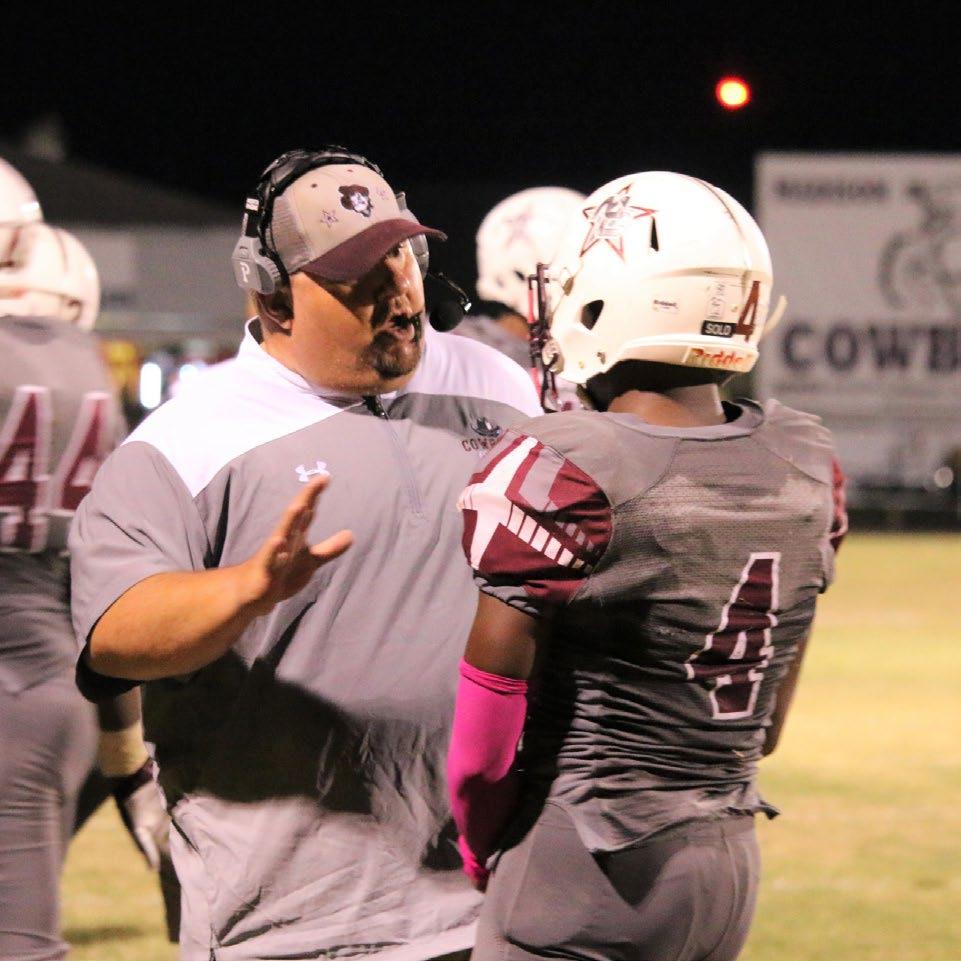
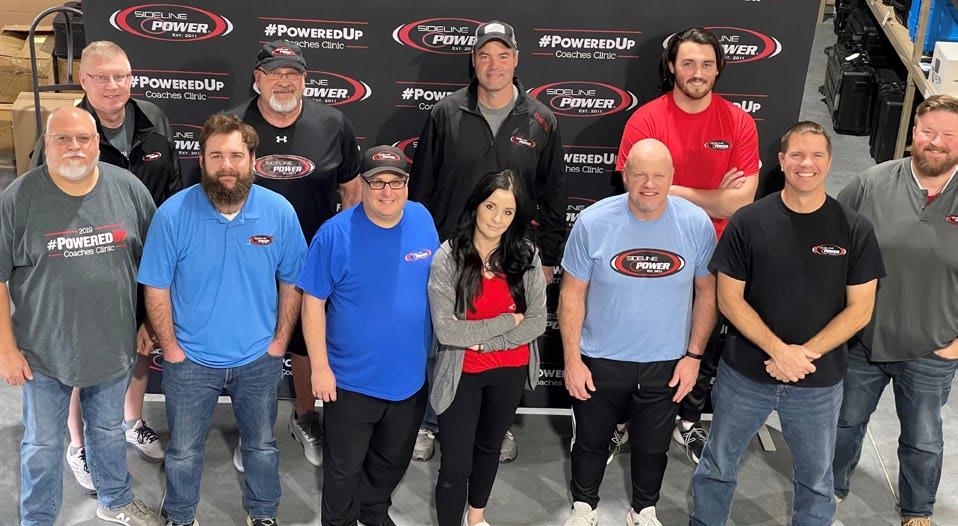
I’m Matt Starr, Founder and CEO of Sideline Power. For this issue, we are going to deviate from a single product spotlight and look at how your program develop a well rounded culture, using a variety of products to promote individual and team development. So, let’s take a look at how technology helps a program develop players into teams and teams into champions.
First and foremost, effective com munication is crucial in any form of development. When information is presented clearly and concisely a unified vision begins to present itself. Integrat ing technology into communication, Sideline Power carries a plethora of visual aides that help coaches develop their roadmap and directions moving toward that unified vision of future success. On the field

The CoachPad takes the place of old scout binders. With the ability to load multiple binders full of scout cards into a single device that is easily visible in any lighting condition, The CoachPad is perfect for teaching and adapting on the fly. For tempo and continuity, Sideline Power’s selection of timers, clocks, and mobile scoreboard systems give everyone a sin gular point source for information that reaches every corner of the field. For record keeping and motivation, SportBoardz delivers quality, durable boards for all individual and team achievements.
When it comes to verbal communication, Sideline Power offers a wide variety of options to communicate clearly over distances. For on field communication, battery powered speaker arrays from Anchor Audio easily and efficiently fill entire stadiums with sound. Easy to set up, tear down, and transport, battery powered speaker systems provide maxi mum effectiveness with minimal effort. Person to person communication over distance is made easy with a myriad of
headset systems offered by Sideline Power. With push-to-talk, open line, and coach to player systems, Sideline Power enables clear and precise verbal communications from practice field to the championship game.
Developing culture, however, is more than just effective communication. It’s about learning and growing to become the best versions of ourself which supports the best version of the team. In order to learn how to be better we first have to know where we are. And the best way so see where we are is watching what we do. End zone cameras, sideline camera systems, drone systems, and instant replay systems capture ALL of the data needed to analyze and assess individual and team development. Using end zone towers and cameras allows coaches to identify opportunities in spacing, shifts, slants, veer steps, and routes. Utilizing different angles with Digital Piggyback system and a drone allow for a complete picture of each play. While these videography systems allow for detailed analysis and education AFTER the fact, sideline replay systems like SkyCoach provide education and adaptation on the fly.
your program is looking to develop a culture with ideologies of development, unity, growth, knowledge, and motivation, Sideline Power has the tech tools you need.
■ The Sideline Power team are experts on cutting edge footbal tech. Their offerings help to foster development from the practice field, to gameday, to the film room.
